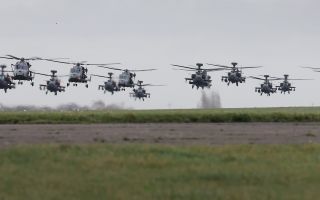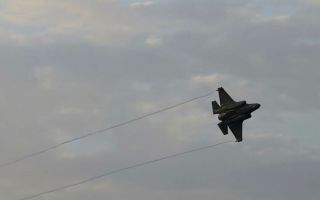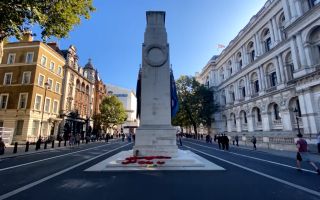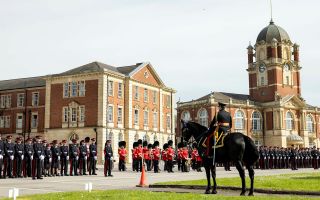Tri-Service
Iran Reveals Missile Base Inside Mountain
Iran's Revolutionary Guard has released unprecedented footage of a secret missile facility hidden in an underground tunnel, deep in a mountain side.
The video, initially broadcast on Iranian television, shows a large tunnel full of medium and long-range missiles and launcher units, with the Guard saying the missiles are ready to be fired in the event of any attack on the nation.
Although the location of the base isn't revealed in the broadcast, it claims that the facility is 1,600ft (500m) underground, and just one of hundreds in the country.
It comes after Russia said in April that it is lifting a five-year ban on delivery of the controversial S-300 air defence missile system, which would give the Islamic republic's military a strong deterrent against air attacks - a move criticised by the US.
The Kremlin said at the time that it would be at least six months before it could deliver the system to Iran.
The Guard, a branch of Iran's armed forces, was founded after the Iranian revolution of 1979 to protect the country's Islamic system.
It boasts around 125,000 military personnel including ground, aerospace and naval forces.
The head of the Guard's aerospace branch, Amir Ali Hajizadeh, said the facility was "only the tip of the iceberg". He said:
"We have so many bases that (our enemies) cannot confront those bases, no matter how many bases they identify. There are only few provinces, cities or towns (across Iran) without at least one missile base."
The video, which appears to shows officers walking over US and Israeli flags painted on the floor, seems to be aimed at showing that the Guard will continue its missile programme - despite UN Security Council resolutions and Iran's recent nuclear deal with world powers.
It comes after a recent long-range surface-to-surface rocket firing, which the US claimed may have breached Security Council resolutions.
The landmark nuclear deal, championed by moderate President Hassan Rouhani, whose administration has campaigned on easing tensions with the West, requires Tehran to limit its nuclear programme in return for the easing of international sanctions.
More from Forces TV: 10 Things You Need To Know About Iran's Military
On Wednesday its implementation was approved by a senior council of Iranian clerics and lawyers, marking the final required step in the process, despite efforts to derail it from hardliners like the Revolutionary Guard.
And whilst that marks a major victory President Rouhani's administration, the broadcast and missile firing suggest Iranian hard-liners will remain a potent force in the country.









